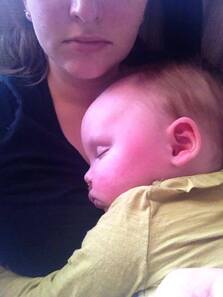 Living with the loss of a loved one is an incredibly hard thing. Even though there are countless books with ideas about how to move forward, I have found there really is no “one size fits all” approach to living life again after a loss of such magnitude. We lost my only daughter, Olivia, to brain cancer when she was just a baby in October 2013. Even though she had been battling cancer for nearly a year and a half there was still nothing to prepare me for the magnitude of losing her so quickly and then for learning how to live life again without her. This year will mark 9 years since I said goodbye to my little girl. The grief still hits me hard, and often, but there are some things I have learned about how to live with the magnitude of her loss. Here are a few of them: 1. Live With Their Memory In A Way That Is Comfortable For You & Your Family I have developed friendships with many other mothers who have lost their children and what I have learned is there is no one size fits all approach to living with the memory of your child. You have to find what is comfortable for you! For instance, I find it comforting to know where Olivia’s clothes and belongings are in my home, but I can’t be surrounded by them either. That would be too much for me to bear on a daily basis. We also have a few pictures of Olivia in our home that are visible, but we also have many more pictures of our family today. Living with too much of a reminder of all that we’ve lost would be way too hard for all of us, and it wouldn’t be fair to my living children and the memories we are making together today. I want my boys to know that while I miss their sister tremendously and think about her every day, I am equally as happy they are alive and I enjoy each moment with them. 2. Few People Will Understand Your Loss - Be Prepared To Educate Them Thankfully the majority of our population won’t have to know the tremendous devastation that comes from losing a child. It’s a club that no one wants to join, but if you do, you will also find it is filled with the most compassionate and amazing people. For those who haven’t experienced this kind of loss though, there are some who will say things that are insensitive or unkind. Usually these comments come from a lack of understanding however, and not because they mean to be malicious in any way, so if you can, be willing to educate them. For example, I’ve had people tell me I was lucky Olivia made it to 20 months. That was easier than if she had died at birth because “at least I had the chance to know her.” I’ve had others who have assumed that because I run a nonprofit in Olivia’s memory I must live my entire life with nothing but her on my brain, which “must be so hard for my other children.” These comments are just two examples of countless comments I’ve gotten from people who didn’t intend to be hurtful, they just didn’t understand. And how could they when they haven’t walked through this same path! I could get angry, but instead I choose to educate. I’ve explained that all losses of children are incredibly hard, regardless of their age or the circumstances surrounding their loss. There is no “at least” when you’ve lost a child - there’s just the loss and the need for support and remembrance of that precious life. I’ve also explained that while my work life is absolutely dedicated to Olivia’s memory and my work here at OCF has given me the ability to keep being her mom in a very tangible way, my home life is different. My family and I talk about her, we remember her, we love her, and we process our grief together when needed, but we also spend far more time choosing to focus on our family now. I want my kids to know that I love them just as much as I love their sister. They aren’t second-fiddle in my heart and I get great joy out of being their mama. It’s also important to me that they learn from my example of how to live with grief without letting it steal all of your joy. 3. Be Okay With Not Being Okay Sometimes - The final piece of advice I want to share today is that it is perfectly okay to not be okay sometimes! I had always been the person who would keep it together no matter what for the sake of those around me and to guard my own heart. I would stuff and stuff my own grief partly because I had to be strong for the rest of my family, but also because I was worried that actually feeling the fullness of my grief would do me in. I went to counseling a few years after Olivia’s death and my counselor told me something that still sticks with me today… “Katie, you have to learn to be okay with not being okay sometimes.” She also told me that on the days when I am not okay I had to learn how to let myself feel it, process the emotions, and then take care of myself to get through it. That was super hard to learn how to do! But I will tell you that doing it changed my life and my ability to deal with this tremendous loss. At first, feeling that grief was debilitating. For those first months I spent many a day in a dark hole where I would cry and live in my pajamas because it was hard to do just about anything. Sometimes I would have a few days like that in a row or several in a month, but each time I would diligently allow myself to work through it. And then before I knew it I realized that I was having less of them, and when I did have a day like that it didn’t take me as long to recover because I knew what my heart needed to get through it. Find out what you need when you aren’t okay. It could be a good cry in a bubble bath or a long walk. It could be curling up in bed under a heavy blanket alone or it could be time spent processing with a loved one. Just figure out what it is for you and know there isn’t a right answer and each bout with grief might require something a little bit different. It just needs to be something that is safe and that helps you heal your heart little by little.
7 Comments
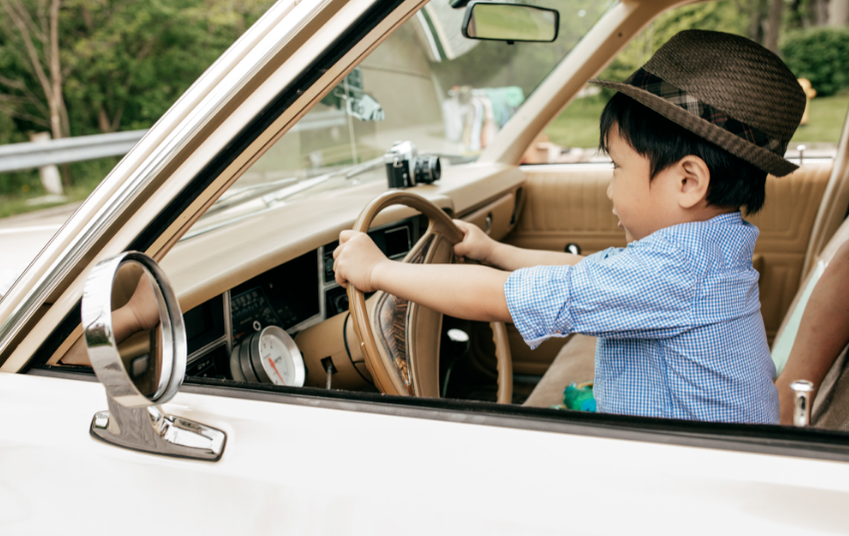 While we all long for specialized care to be fully accessible in every community in Wyoming, the reality is that travel is still more often than not a part of managing a child’s medical diagnosis. To some of us, this may be a new world to navigate. To others who are a little more seasoned, this is not necessarily “easy” but it has worked itself into family life to be part of the new normal. I would like to pass along a few tips and tricks that I’ve heard can make a real difference to make these drives - no matter how far or how often - more manageable. #1: List It Out For those of you who are not Type A, lists can sometimes feel more of a burden than a help. But hear me out, as this may help keep us Type B’s a little more in our laid-back-go-with-the-flow skin. A packing list may seem obvious, but when life is already overwhelming, trying to keep everything in our busy minds may be asking a little too much of ourselves. It may take a few trips to hone in on the perfect packing list for your family, so that’s why it may be handy to keep the list on your phone. We all typically have our phones with us at all times and there are plenty of apps that can help organize us. I have come to appreciate Google Keeps as I can add others to the lists and we can all put our great ideas into it. Plus, if I think of something while I’m on the go, it’s right there in my purse or pocket for a quick edit. For those of us who like paper - I get it - write it out and stick it somewhere just as accessible. Or type out something in a doc and print it each time you need it! It can be very satisfying in a busy time to be able to check, cross, or full on scribble a line out that’s been completed! #2: Home Away from Home It is not easy to pack up your family and household necessities for an appointment (or 3), reach your destination and realize that you’ve landed in a neighborhood hotel that is not in your preferred sort of neighborhood! This is especially true when traveling to the bigger cities like Denver or Salt Lake for care. The cheapest or closest hotel may not always be the safest, cleanest or in general a star-worthy experience for your family in an already stressful trip. If you’re not sure about where a good place to stay is, ask those who know the area (other parents, hospital Navigators, groups that help with travel). I’d also be happy to help point you in some good directions! Know you’re going to be there often? Get to know your new neighborhood. Find places to stay that have the amenities you will need access to (i.e. grocery stores with/out delivery services) while you are there. New to the game and not even sure what you may need? Don’t hesitate to reach out to that same group of people in the know for some tips. Again, I’d be happy to help you! #3: Make it Memorable Navigating through your child’s illness is incredibly hard for the entire family! And traveling for treatment only makes that harder. So why not make time for a little bit of fun as a family when you are traveling to make some memories? It doesn’t have to be anything big or fancy, but it is amazing what a quick trip to the zoo, trying a new ice cream shop, or discovering a new park can do for everyone’s spirits during a difficult time! If this trip is going to be more regular and the child recognizes to their own degree the hardship of it, do not feel bad for wanting to add something positive to their memory bank and future expectations that there will be something to look forward to, as well. And you don’t have to tell your kid(s) - but that memory could be a huge breath of fresh air for you, too. #4: Ask Even though it might feel like you are alone in this medical journey, I can assure you that you are not! Countless other families have traveled similar paths and would love to help you get connected and feel less alone. Ask other families who have gone through a similar path of miles to help care for their child. Ask the Navigators, nurses - anyone - in the hospital or clinic what they know about and would recommend. Let’s also be real about the expense. The medical bills are enough on their own to oftentimes warrant (if possible) second jobs to cover it all. Add to that the gas, wear and tear on a vehicle, hotels, meals, and everything else that can pop up while you’re not at home and all of sudden these trips - that you will take no matter what for the sake of your child - are eating away at savings at a rapid pace. Please ask for help - there are so many wonderful organizations in Wyoming that want to help families like you with gas cards, hotel and meal vouchers, etc. Don’t know how to find them? I can help! It’s an honor to work with so many of these groups and I would be so happy to connect you to the group(s) that fit your needs the best. If you ever need anything along your child’s medical journey and aren’t sure where to turn, I would be so happy to walk a few miles with you. Give me a call at (307)333-1273, email me at [email protected], check out our website or find us on social media! Whatever is easiest for you, we’re here to help and cheer you on!
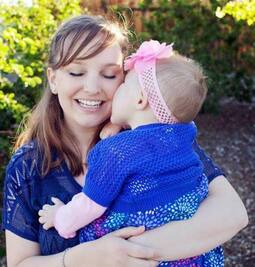 “How do you do it? If my child died I don’t think I could get out of bed again, let alone start a foundation.” I can’t tell you how many times I’ve been asked some version of that question since I created the Olivia Caldwell Foundation in November 2013. Well meaning people marvel at the super-human strength I must have to be able to run a foundation in honor of my daughter after her death. But I am going to let you in on a little secret… I am far from a superhero. I don’t have extra strength and her loss has been anything but “easy” on me. I never got to have the “normal” experience of mothering my only daughter. From a scary, premature birth, to time in the NICU followed by months of supplemental oxygen, Olivia’s start to life wasn’t a simple one. And then just one week after losing her oxygen tank, Olivia was diagnosed with brain cancer at 4 months old. And unsurprisingly, life after that diagnosis was anything but easy or normal. Our days were filled with a tremendous amount of love and many joy-filled moments, but they also came with a huge amount of doctors appointments, days in the hospital, medications, scans, anxiety, and fear. Cancer took everything that Olivia’s life should have been and ripped it up into a million little pieces. I was her mother and I would have done anything to keep her alive and to make each moment she had as beautiful as possible; and so throughout the 20 months we had together, I was completely devoted to that little girl. I held her through every single chemo treatment and many nights were spent with her asleep in my arms. I learned how to access her mediport to give her fluids if needed, give her complex medications, and to become an advocate for her at absolutely every turn. And then it all stopped without warning on October 22, 2013 when my little girl died pretty suddenly, and my whole world stopped spinning. Just 20 months of being Olivia's mother was never going to be enough. I spent the first few days after her death in complete shock. I felt like I was floating out of my body because this couldn’t possibly be real. I had waited my whole life for a daughter of my own and then she was ripped from me before we even got to live our lives together. But then one day I was praying in the shower, eyes nearly glued shut from all of the tears, when I knew what I was supposed to do. I was never supposed to stop being Olivia’s mommy when she died. I was being called to be her mommy in an entirely different way. And that was the day the Olivia Caldwell Foundation was born. The steps to creating the foundation happened quickly, but running it over the years has been anything but easy. I miss my daughter with my entire being. Even nearly 8 years later there are times my entire soul aches for her and it is exceptionally hard to get out of bed in the morning. But what keeps me going is knowing that I get to spend every day still being Olivia’s mom; that role just looks different now. Instead of spending my days at the hospital with my daughter or navigating through appointments, I spend my days fighting to ensure no other family has to go through those experiences alone thanks to our Patient Advocate. I also fight to bring better access to pediatric care in Wyoming so more families can receive the best care for their medically complex child without having to travel to Denver constantly. I will also always fight with everything I have to make it possible so the next child that’s diagnosed with cancer doesn’t have to lose their life. As bittersweet as it is for me, Olivia’s legacy through OCF has already done just that for other children who receive the same brain cancer diagnosis she did. This happened when our research team identified an effective oral treatment a few years ago for that specific subtype of cancer. So how did I do it? How did I have the strength to create a foundation so soon after my daughter’s death and to keep running it years later? To me there wasn’t really a choice not to. I didn’t choose to have my daughter get cancer or to have it take her life. But I will always choose to keep being her mom in whatever tangible way I can, and to make sure my daughter is never forgotten even though she only had a short 20 months to live here with me.
|
AuthorWrite something about yourself. No need to be fancy, just an overview. Archives
December 2022
Categories
All
|
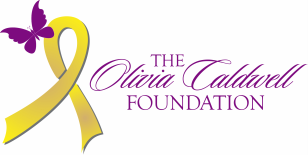
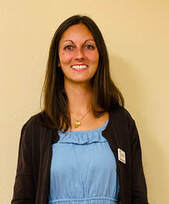
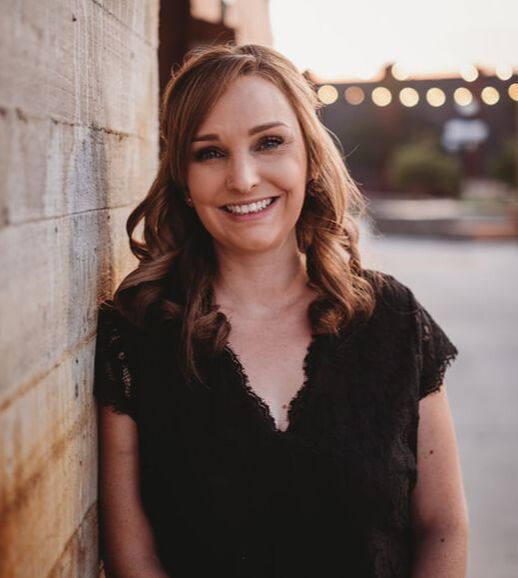
 RSS Feed
RSS Feed



